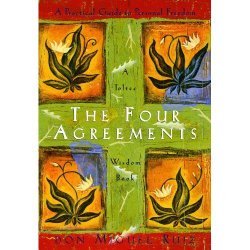"No one is as capable of gratitude as one who has emerged from the kingdom of night."
~Elie Wiesel
Sometimes authors receive bad reviews and become upset. It's a natural human reaction. Instead of crying to their dog, or eating chocolate ice cream with their vodka, they embark on an anti-hero's journey:
--Some lash out, contacting the reader or reviewer in a battle of unnecessary words, and let's face it, things get nasty. I do not recommend this course of action.
--Some vent about the ridiculousness of the review or the reviewer in a sub-tweet or sub-post on Facebook (meaning, they don't name the person but talk about them anyway -- kind of a non-gossipy form of gossip). It's like writing a letter you only send to your friends about he or she who-will-not-be-named.
--And some, like Ayelet Waldman just yesterday, go off on a Twitter rant, not because she received bad reviews (she received glowing reviews of her latest release, in fact), but because the New York Times didn't add her to the most 'Notable' 100 books of 2014. It's hard watching the most elite of inner circle white privilege (and I say this as a struggling white writer person) melt into a pile of sticky, self-righteous goo.
Actually, it wasn't hard it all. It was mildly entertaining, and a little bit sad. Sad because she is extremely bright and able to use her position to help those in need -- and she has, and she does. I hope this will be a lesson to her, to look at how blessed she is, and be grateful for how many people she can help through her position, wealth, and advocacy.
But the point of this article is to help authors deal with criticism, because we all get it at some point. I've found that The Four Agreements by Don Miguel Ruiz is an extremely helpful book you can put into daily practice in dealing with criticism of any kind. Let's deconstruct.
Don't Take Anything Personally
'Nothing others do is because of you. What others say is a projection of their own reality, their own dream. When you are immune to the opinions and actions of others, you won't be the victim of needless suffering.'
This sounds c-r-a-z-y, I know, but when someone writes a 1-star review of your work, many times it has nothing at all to do with the work itself (particularly on Amazon), but more with their own perceptions of their life and experiences. Go ahead over to my third release, Broken Pieces (Essays Inspired By Life). Out of 199 reviews, 17 are 1-star. Many don't like the 'pieces-like' structure (never mind that it's in the title). Okay, cool.
I don't get upset because it's usually not a reflection on the work itself, or me as a person. They don't like that it's not chronological or linear, something I did purposefully, to create a sense of discomfort in the reader. Every 1-star that complains of the structure is a win for me! Or maybe they can't relate to what I write about. Or maybe they just don't like essays and poetry.
Despite having won nine awards for the book, some people just think it sucks, and that's their right. I'm grateful they took the time to read it and still hated it. I choose to be thankful that someone, anyone, is reading me. C-r-a-z-y, I know.
I've worked with many writers (author friends and clients) over the years, and my advice is always the same: writing is art, art is subjective, subjectivity is crucial to writing. It's a loop. We need to accept that some people won't like what we write, and that's okay. I certainly don't like every book I read -- why should our readers be any different? Hey, I didn't like Gone Girl (sorry).
Always Do Your Best
'Under any circumstance, always do your best, and you will avoid self-judgement, self-abuse, and regret.'
Is your book professionally edited, proofed, designed, formatted, with a great cover? It must be. If it's not, you deserve the harsh criticism you receive. These are not options if you want to be taken seriously as a writer.
Too many writers say, 'I can't afford that!' and I get it. I do. It's expensive. Still, it's not like it's optional. You can't perform surgery with a pencil. Make it happen -- raise the funds using a crowd funding platform like PubSlush (I like their model because you keep whatever people pledge, even if you don't meet your goal). Trade services with others. Wash cars. Stop going to Starbucks every day. Whatever it takes, put the effort into your books to make them spectacular.
If you still get nothing but 1-star reviews after that, pull it. You aren't ready. Write more, edit more, ask for critiques from writers and editors you respect. Everyone has a story in them, but not everyone can write it well. Work harder.
Don't Make Assumptions
'Find the courage to ask questions and to express what you really want. Communicate with others as clearly as you can to avoid misunderstandings, sadness, and drama.'
I received an email earlier this year from an author I barely know on Twitter who was hopping mad at me because a reviewer had slammed her book. I know, right? My reaction of 'Wait, what?' didn't hold any water with her, or her temper. She went on to trash me and my business publicly, out of spite.
Her assumptions were egregious. What's sad is that the reviewer (who is also an editor) was willing to help her improve her work. If the author had asked me questions instead of assuming that I was involved, perhaps I could have helped pool together my connections so she could have turned her book around in some way. We were all willing to help her, but her assumptions stood in the way.
Be Impeccable With Your Word
'Speak only with integrity. Say only what you mean.'
As authors, we have to be conscious of everything we say publicly, whether it's on our blog or on social media. Not because Big Brother is watching, but because we are professionals who are selling a product (our books). Being an author is being a business, like it or not.
You may have read about an author recently who stalked a reviewer, and then showed up on that reviewer's doorstep; or another who traveled to a different country just to bonk a reviewer on the head with a bottle of wine, causing a concussion and many stitches. 'Authors behaving badly' has become a meme of sorts, and it shames us all.
Don't be that author. Rise above. Whether or not you use The Four Agreements or believe in this kind of 'new age stuff' (for what it's worth, I'm not normally a New Age kind of girl -- in fact, I'm very practical, which is why these Agreements appeal to me. They are easy to remember and put into practice), I suggest you feel your feels when you receive a poor review. That's a normal, healthy reaction!
And then cry about it to your dog.
Do you have a favorite 1-star review you want to share? Great. But here's the catch: what was your reaction to it then, AND how can you apply one of the Four Agreements now? Go.
Images: Google and Unsplash


